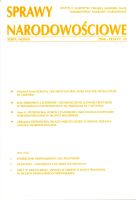Wokół cygańskości jako emanacji kategorii narodowościowej w muzyce węgierskiej
Around ‘Gypsyness’ as an emanation of nationality in Hungarian music
Author(s): Anna G. PiotrowskaSubject(s): Cultural Essay, Political Essay, Societal Essay
Published by: Instytut Slawistyki Polskiej Akademii Nauk
Keywords: Gypsy music; Hungarian national music; Liszt; Bartok
Summary/Abstract: National perspective in the writings on so-called Gypsy music, resulting from the 19th century tendencies, dominated the musicological discourse. Due to the 1859 book by a renowned Hungarian composer Franz Liszt, Des Bohémiens et de leur musique en Hongrie, Gypsy music was proclaimed the only real source of Hungarian national music. Such a statement caused a lot of criticism in the intellectual circles of Hungarian middle class preferring to perceive the repertoire performed by Gypsy bands as purely Hungarian music. The misunderstanding rested, however, on strong bases: Hungarians themselves were more than willing to allow Gypsy musicians entertain them with the compositions meeting their own requirements. The ever growing, since the late 18th century, popularity of Gypsy musicians in Hungary constituted yet another factor complicating the issue. In the early 20th century, another Hungarian composer, Bela Bartok, presented a new outlook on Hungarian national music and its relation to Gypsy music. He proclaimed Hungarian peasant music the most important part of Hungarian folk music while attributing Gipsy bands only the role of propagators of Hungarian urban music. Nowadays research on music by Hungarian Gypsy concentrates on the problems of interior variety of styles, different for various Roma groups living in Hungary, and the question of the transformation of their music due to the globalization processes rather than on the issue to what extend Gypsy music should be considered national in Hungarian context.
Journal: Sprawy Narodowościowe
- Issue Year: 2008
- Issue No: 32
- Page Range: 87-97
- Page Count: 11
- Language: Polish

